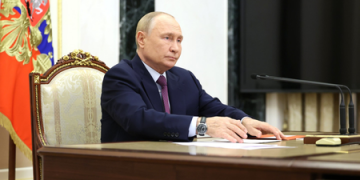Ramla, July 4: At a curry house in central Israel, a poster welcoming Prime Minister Narendra Modi greets patrons even before they encounter the rich scent of spices wafting from the kitchen. Modi’s three-day visit beginning Tuesday — the first ever of an Indian PM to Israel — is a landmark moment for the Jewish state, a country seeking the friendship of powerful allies and customers for its advanced military equipment.
But for members of the small Jewish Indian community in Israel, the trip is a cause of genuine excitement and a unique opportunity to increase their visibility.
“There’s not a single (Indian) household that’s not talking about it. This is all people are talking about,” said Elazar Ashtivker, owner of the Maharaja restaurant in the city of Ramla, south of Tel Aviv.
“It’s historic,” he said.The fast-talking 33-year-old’s parents, who were born in India, opened the restaurant in its first incarnation in the 1980s because they felt “the community was in decline”.
Initially, the restaurant served the Indian community nearly exclusively. But in the 1990s the trend of Israelis travelling to Asia after completing their military service became wildly popular, and many returned home with a taste for the Maharaja’s spicy delicacies.
The restaurant serves what Ashtivker calls “mainstream Indian food” but also sells peppers, vegetables and imported spices.
The wording on the poster is in the colours of the Indian flag and invites members of the Indian community, in Hebrew and English, to a July 5 meeting with Modi in Tel Aviv. “There’s a lot of excitement,” Ashtivker said. “Everyone has signed up and everyone is going.”
“If you looked for Indians in Israel on the 5th you won’t find any. They’ll all be at the convention centre,” he said with a laugh. Estimates put the number of Jews of Indian origin in Israel at about 100,000, according to Eliaz Dandeker, a historian and author documenting the community. Even those of Indian-origin born in Israel maintain a “deep connection” to their ancestral homeland, said Dandeker, including through music, cinema, food and cultural events. Events in Israel have featured appearances by Indian actors.
They began coming to Israel en masse in the late 1940s and early 1950s for religious and other reasons. Many of them settled in rural communities to become farmers, while others moved to peripheral towns throughout the country. In the first years following the creation of the state of Israel in 1948, many Indian immigrants abandoned their names and traditions as part of the era’s “melting pot” ideal.
“There’s more openness today” to Indian culture, the 34-year-old Dandeker said. “The younger generations want to know more.” AFP







































